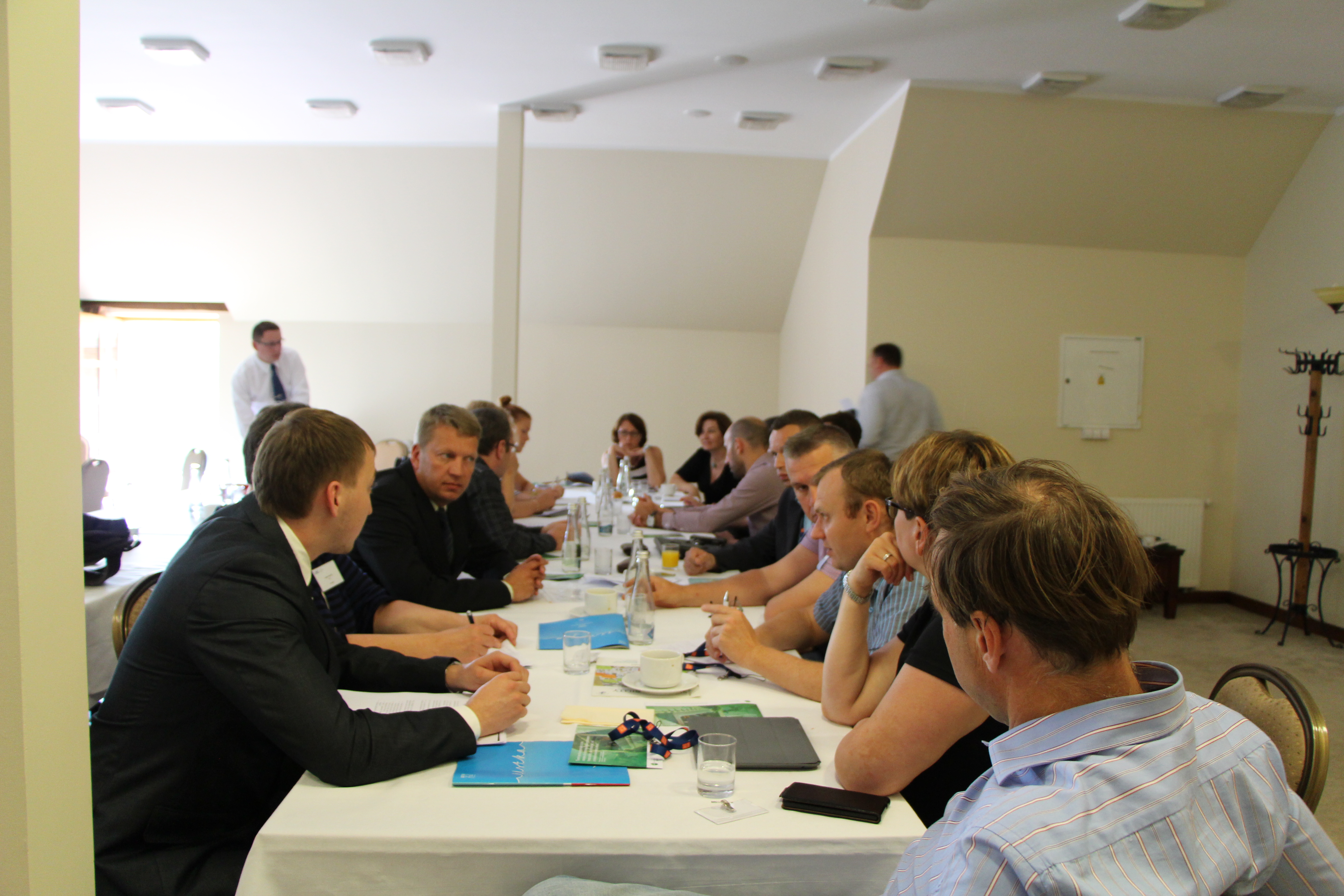Need for common principles on sustainable event management
It was discussed during the meeting that organizing events is a co-operation between various actors, such as municipal authorities, businesses and NGOs. There´s an actual demand for smooth communication, clear instructions for necessary permits and safety regulations. In addition, cultural and social values should be incorporated in all levels of the event management. As the outcome of the meeting, the participants committed to work for establishing a guidebook for sustainable event management that would disseminate smart practices from the UBC cities.
 Susanna Winblad, City of Malmö, stressed that already existing cultures and facilities should be utilized when planning and organizing events
Susanna Winblad, City of Malmö, stressed that already existing cultures and facilities should be utilized when planning and organizing eventsBy combining different angles (safety, culture, sustainability), it is ensured that all central elements will be taken into consideration and included in the guidebook. Secondly, the participants discussed that there is a need for commonly shared principles on sustainable event management in the Baltic Sea cities. Therefore, the possibility to use the guidebook also as a toolkit for cities will be explored. Finally, participants suggested that the guidebook would be published as web-application and distributed broadly in the UBC cities and well as schools and other relevant stakeholders.
The joint meeting gathered around 30 participants from the UBC cities. More information about the follow-up will be published in UBC page later.
